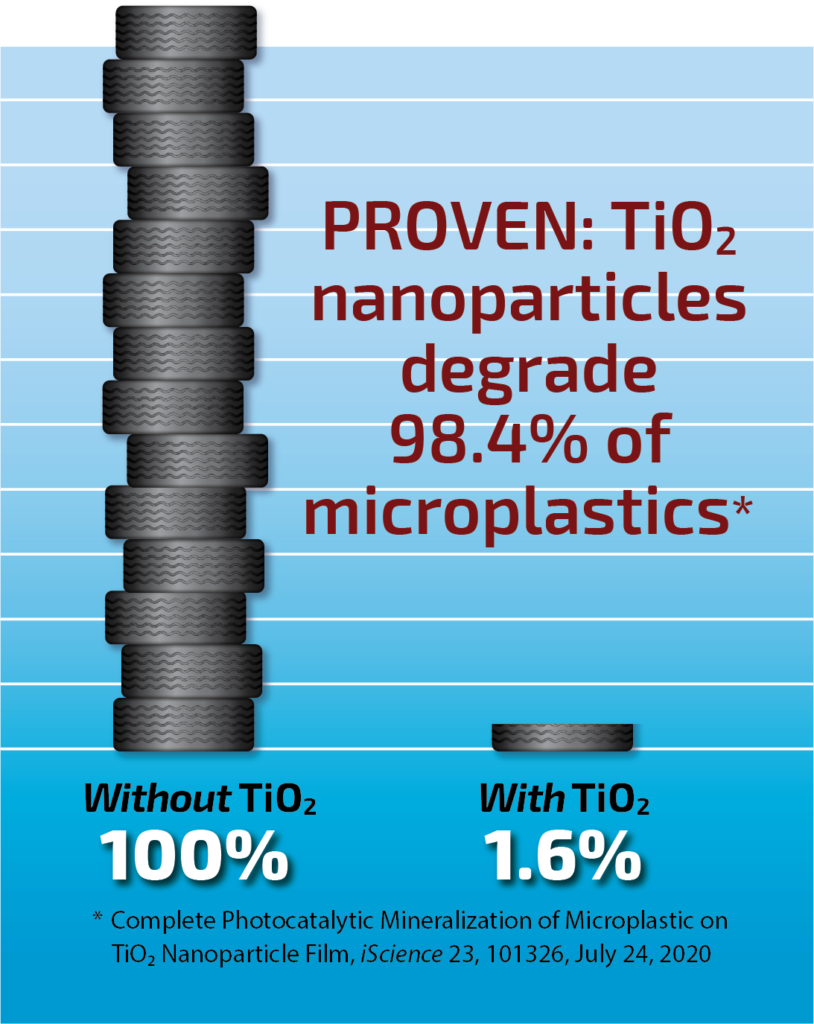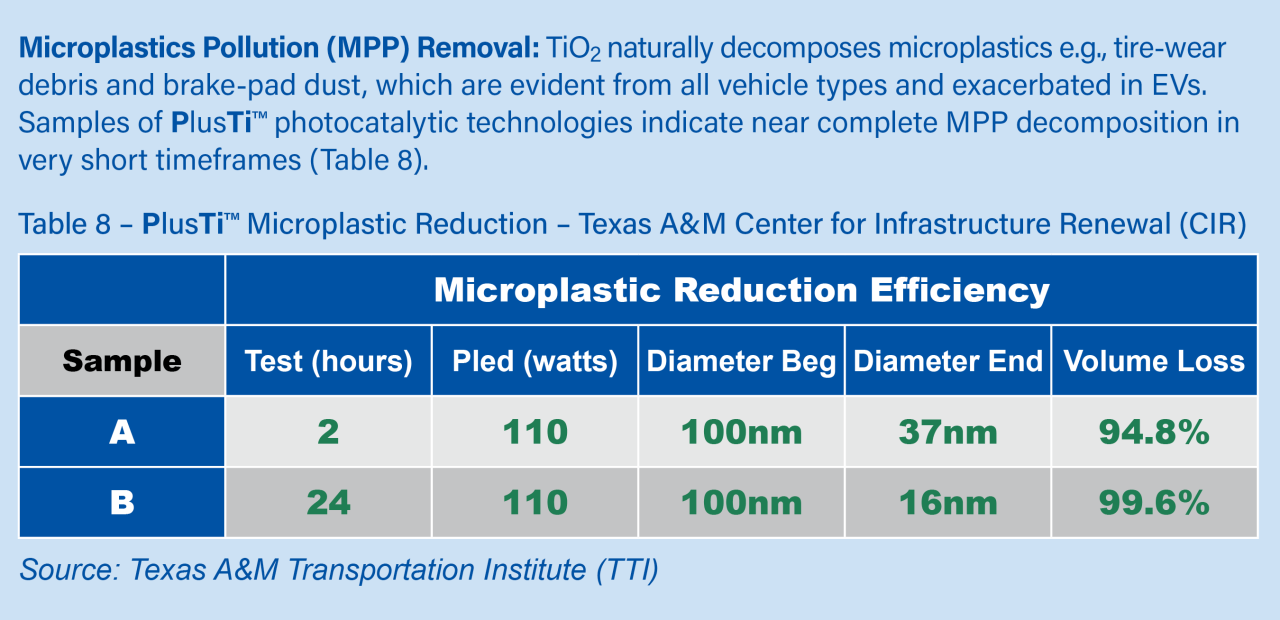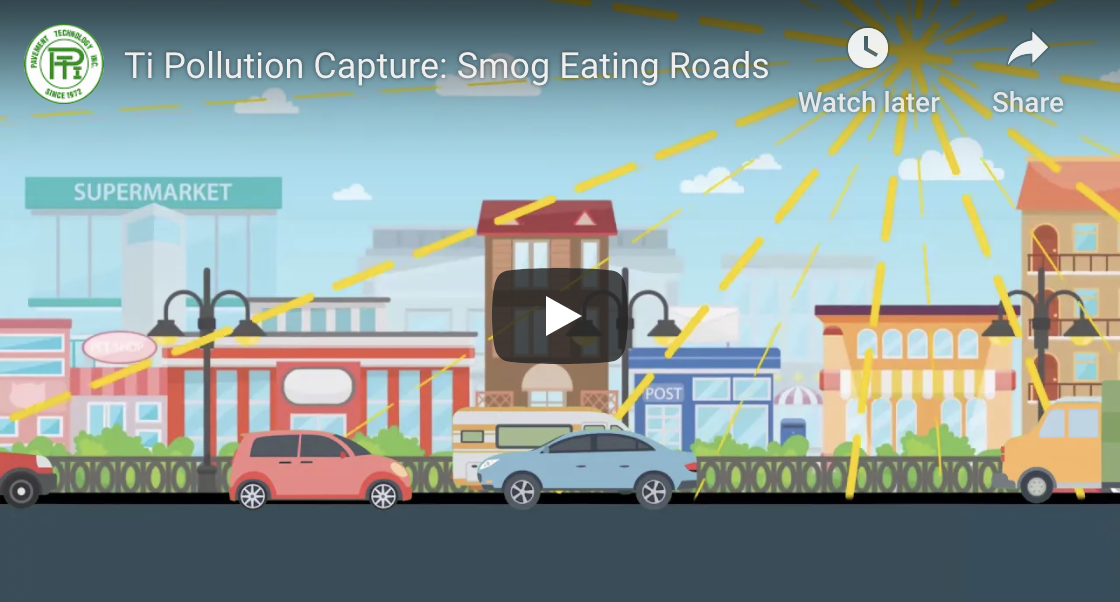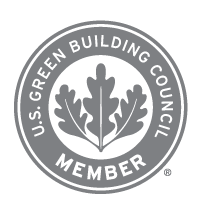Microplastic Reduction
Reducing On-Road Microplastic Pollutants (RAMP)
Microplastic debris from tire-wear and brake-wear particles that enter our waterways from our roads is a major contributor to both water and air pollution. Self-cleaning, cool photocatalytic pavements, enhanced with titanium dioxide (TIO2), help purify stormwater while mitigating mold and bacteria growth on asphalt and concrete infrastructure.

It’s been reported that more than 85 percent1 of the microplastics polluting our oceans and one-third of PM2.5 air quality contaminants come from road-associated microplastics (aka RAMPs). TiO2 is highly efficient at fully degrading microplastics. In fact, independent studies have confirmed that photocatalytic-grade titanium is 98 percent effective at removing microplastics2, including but not limited to those microplastics found in RAMPs.
Our coastal communities are particularly vulnerable to microplastic pollutants as micro-particles shredded from on-road tires and brake-pad wear migrate into the streams and rivers adjacent to roadways, and then make their way into nearby oceans and lakes.
A recent Texas A&M Transportation Institute (TTI) report confirmed the efficacy of TiO2 -enhanced PlusTi™ photocatalytic technology to degrade 100 percent of microplastic pollutants when applied to concrete and asphalt on-road environments.

TTI’s latest research shows that the photo-reactive nature of titanium provides another strong environmental benefit by naturally reducing microplastic accumulations from tire and brake-pad wear. The United Nations Environmental Program is currently developing an international legally binding instrument to reduce plastic pollution as a growing environmental hazard. These on-road non-exhaust emissions are also part of the Federal Highway Administration’s (FHWA) “Climate Challenge” initiative, which is expected to play a large role in future highway construction.
Read more about Roadway Microplastic Pollution & TiO2 here.













